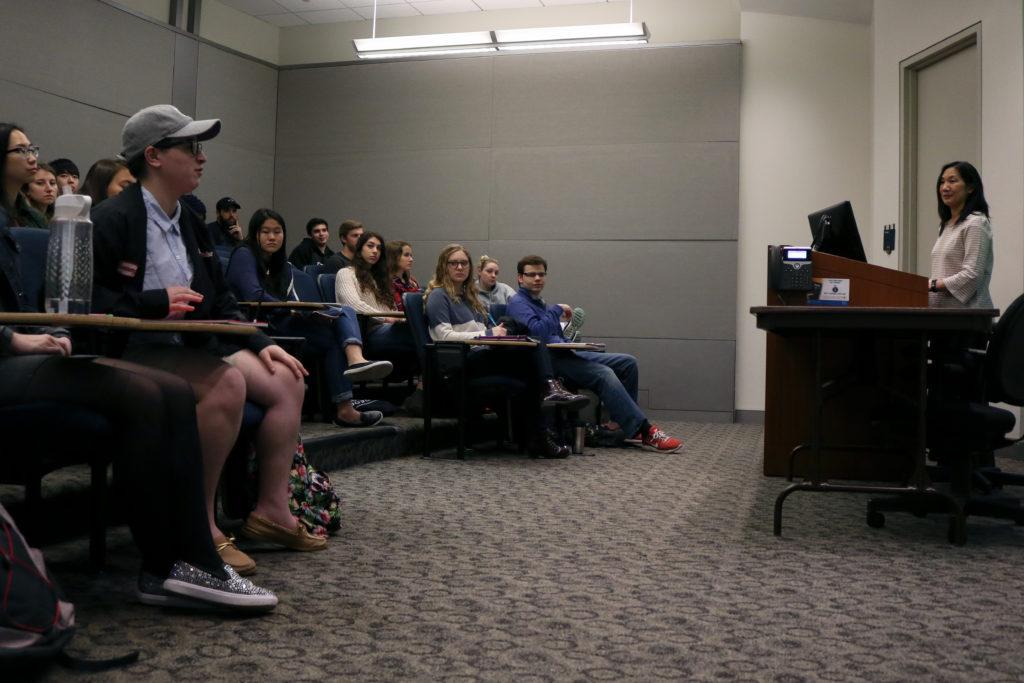You’ve heard that mother knows best, but on college campuses professors have the final word.
They assign the readings, give the lectures and grade the exams, so no one is better suited to tell you how to succeed this semester than the person submitting your final grade.
We chatted with three professors to ask their advice before you head into syllabus week. Here’s what they had to say about setting the framework for a successful semester:
It’s in the syllabus
The first week of classes is called syllabus week for a reason. Professors take their syllabi seriously, and they expect students to do the same.
Michelle Allendoerfer, assistant professor of political science, said she encourages students to write down all exam dates, quizzes, due dates and important events before getting back into the groove of the semester.
“If you do that in your first week, it gives you a really great overview of what your semester is going to look like, and you can identify early on the weeks where you have a lot of things due all at once,” Allendoerfer said.
Class assignments and grade weights can be confusing, but they have consequences later in the semester so you will want to ask questions early, she said.
Don’t let your priorities domino
Schedule change-ups happen. You may have just gotten off the waitlist for a class or attained a last-minute internship, but if you make changes during the beginning of the semester, it is still your responsibility to catch up.
Carol O’Donnell, an astronomy professor in the physics department, said that while professors understand packed schedules, it is a student’s responsibility to keep themselves afloat and organized.
“We all know it’s a domino effect,” O’Donnell said. “Once you have to leave one course, it may impact another one, and suddenly you’re two weeks late into a new course and already struggling.”
When transferring into a class late, it is important to communicate with the instructor and not just slip in through the back door, O’Donnell said. Let them know about your situation and ask early on how you can catch up and what you may have missed.
Create calendars
Balancing classes, internships, extracurricular activities and a social life can be overwhelming.
Dara Orenstein, an assistant professor of American studies, said she understands students have busy lives outside the classroom.
“I’ve been struck by how packed the schedules of the undergraduates are on this campus,” Orenstein said.
But it is important to stay organized so you have a clear image of when you are available.
You may not expect this advice from a professor, but Allendoerfer said students should take advantage of their time off and relax instead of loading another Netflix episode.
“Just make sure you’re creating that time as much as you can all semester to do something besides homework and besides work,” Allendoerfer said. “All those are obviously important, but you have to take care of yourself too.”
Talk it out
Your professors want to hear from you. Whether you are a senior in a 15-person class with a professor you have had four times or a freshman in a class with 200 students, getting to know professors can be influential even after final grades are filed.
“I think freshmen feel a little intimidated by the whole college process,” Allendoerfer said. “So knowing that the instructors are really there to help them, I think it’s a message that freshmen might need to hear.”
Take a DIY approach
They may try, but professors can’t do it all.
Rather than emailing your professor for every small question, all three professors suggested students find peers in classes they can talk to. That way, you can form study groups, ask questions and by the end of the course – you may have found lifelong friends.
Professors also encouraged students to take ownership over their grades. Professors can be responsible for hundreds of students each semester, so mistakes can happen. If you are on top of your grades and approach your professor with concerns, you’ll breathe a sigh of relief when final grades are posted.




